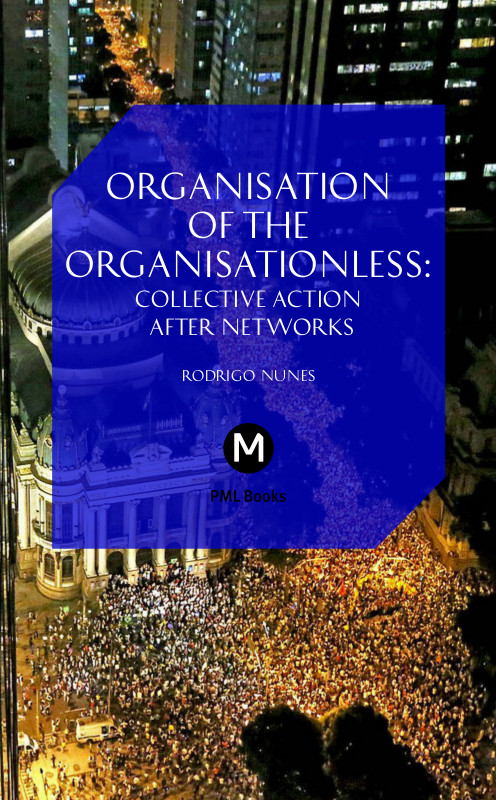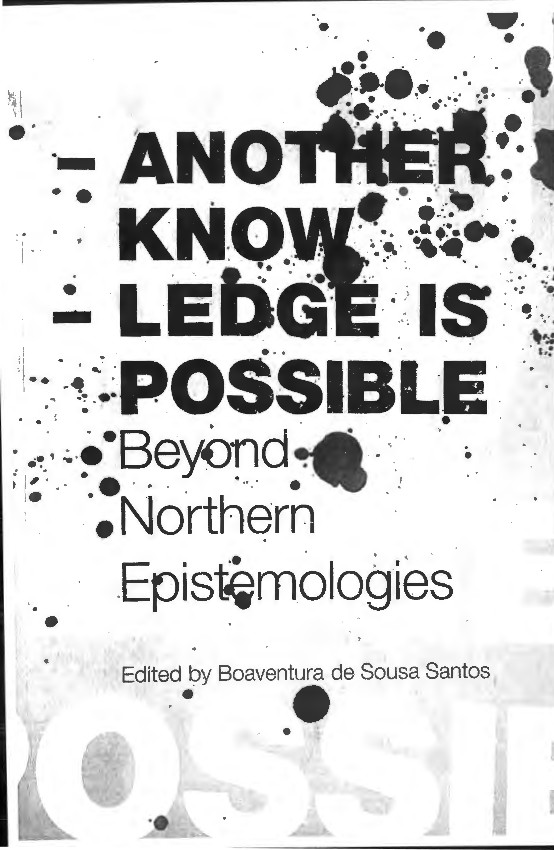Major Waldemar Fydrych: Lives of the Orange Men: A Biographical History of the Polish Orange Alternative Movement (2014)
Filed under book | Tags: · 1980s, activism, communism, dissent, happening, humour, poland, politics, protest, revolution, social movements

“In Communist Poland, Surrealism Paints You!!!
Between 1981 and 1989 in Wroclaw Poland, in an atmosphere in which dissent was forbidden and martial law a reality, the art-activist Orange Alternative movement developed and deployed their “socialist sur-realism” in absurd street-painting and large-scale performances comprising tens of thousands of people dressed as dwarves, in an effort to destabilize the Communist government. It worked. Beginning with the ‘dialectical painting’ of dwarves onto the patches of white paint all over the city’s walls, which uncannily marked the censorship of opposition slogans, the group moved on to both stage happenings and over-enthusiastically embrace official Soviet festivals in a way that transformed both of these into mass expressions of dissent. They illegally restaged the mass spectacle of the storming of the Winter Palace on the anniversary of the October Revolution using their own homemade tanks; organized patriotic gatherings in which anyone waving red flags or wearing red (or eating red borscht, or covering oneself in ketchup) was arrested; and inspired other Orange Alternative groups to appear across the country. Although the group existed to the left of the mainstream opposition of Solidarity, their art was a key, acknowledged factor in the overthrow of the Communist government.
Lives of the Orange Men tells the story of the movement’s main protagonists, and is the first stand-alone English-language account of the Orange Alternative, written autobiographically by is central figure, and featuring an appendix of newly translated key texts including Major’s “Manifesto of Socialist Surrealism,” a timeline of every Orange Alternative happening, and a new foreword from the Yes Men.”
Foreword by the Yes Men
Edited by Gavin Grindon
Translated by David French
Publisher Minor Compositions, 2014
Open Access
ISBN 9781570272691
328 pages
Review: Stewart Home (ArtReview, 2014).
See also other publications about the Orange Alternative
Comment (0)Rodrigo Nunes: Organisation of the Organisationless: Collective Action After Networks (2014)
Filed under book | Tags: · activism, networks, organization, social movements

“Rejecting the dichotomy of centralism and horizontalism that has deeply marked millennial politics, Rodrigo Nunes’ close analysis of network systems demonstrates how organising within contemporary social and political movements exists somewhere between – or beyond – the two. Rather than the party or chaos, the one or the multitude, he discovers a ‘bestiary’ of hybrid organisational forms and practices that render such disjunctives false. The resulting picture shows how social and technical networks can and do facilitate strategic action and fluid distributions of power at the same time. It is by developing the strategic potentials that are already immanent to networks, he argues, that contemporary solutions to the question of organisation can be developed.”
Publisher Mute, London, with Post-Media Lab, Lüneburg, 2014
PML Books series
Anti copyright
ISBN 9781906496753
53 pages
Reviews: Dave Mesing (LA Review of Books, 2014), Clemens Apprich (J Digital Cultures, 2014).
PDF, PDF (updated on 2023-11-15)
Comment (0)Boaventura de Sousa Santos (ed.): Another Knowledge Is Possible: Beyond Northern Epistemologies (2007)
Filed under book | Tags: · biodiversity, capitalism, environment, epistemology, human rights, knowledge, medicine, neoliberalism, social movements

“The main argument of this book is that there is no global social justice without global cognitive justice. Probably more than ever, global capitalism appears as a civilizational paradigm encompassing all domains of social life. The exclusion, oppression, and discrimination it produces have not only economic, social, and political dimensions but also cultural and epistemological ones. Accordingly, to confront this paradigm in all its dimensions is the challenge facing a new critical theory and new emancipatory practices. Contrary to their predecessors, this theory and these practices must start from the premise that the epistemological diversity of the world is immense, as immense as its cultural diversity and that the recognition of such diversity must be at the core of the global resistance against capitalism and of the formulation of alternative forms of sociability.” (from the Introduction)
Another Knowledge Is Possible explores the struggles against moral and cultural imperialism and neoliberal globalization that have taken place over the past few decades, and the alternatives that have emerged in countries throughout the developing world from Brazil and Colombia, to India, South Africa and Mozambique. In particular it looks at the issue of biodiversity, the confrontation between scientific and non-scientific knowledges, and the increasing difficulty experienced by great numbers of people in accessing information and scientific-technological knowledge.
With contributions by Margarita Flórez Alonso, Luis Carlos Arenas, João Paulo Borges Coelho, Arturo Escobar, Yash Ghai, Maria Paula Meneses, João Arriscado Nunes, Lino João de Oliveira Neves, Mauricio Pardo, Shalini Randeria, Laymert Garcia dos Santos, Vandana Shiva, Carlos Frederico Marés de Souza Filho, Tewolde Berhan Gebre Egziabher, Shiv Visvanathan, and Thokozani Xaba.
Publisher Verso, London, 2007
ISBN 9781844672561
447 pages
via the editor, HT kris
PDF (single PDF, updated to an OCR’d version on 2014-5-9 via esco_bar)
PDF (PDF chapters)

